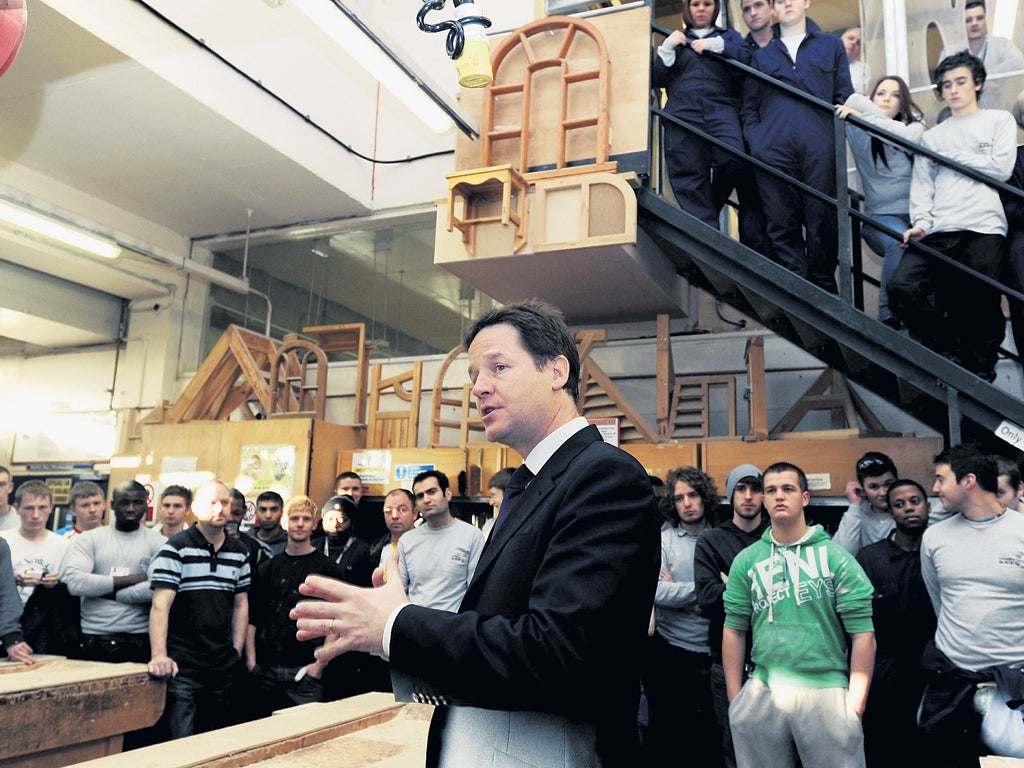Osborne gives free schools £600m to boost maths teaching

Your support helps us to tell the story
From reproductive rights to climate change to Big Tech, The Independent is on the ground when the story is developing. Whether it's investigating the financials of Elon Musk's pro-Trump PAC or producing our latest documentary, 'The A Word', which shines a light on the American women fighting for reproductive rights, we know how important it is to parse out the facts from the messaging.
At such a critical moment in US history, we need reporters on the ground. Your donation allows us to keep sending journalists to speak to both sides of the story.
The Independent is trusted by Americans across the entire political spectrum. And unlike many other quality news outlets, we choose not to lock Americans out of our reporting and analysis with paywalls. We believe quality journalism should be available to everyone, paid for by those who can afford it.
Your support makes all the difference.A £600m programme to create 100 free schools will be announced by the Chancellor, George Osborne, in his Autumn Statement on Tuesday.
The expansion of the free schools scheme, under which parents, teachers and voluntary groups can apply to set up state-funded schools, is designed to make England a world leader in maths, which ministers regard as a vital field to give the economy a long-term boost.
About 12 of the selective schools would specialise in maths. They would be for 16 to 18-year-olds and would enjoy freedom over the curriculum and teachers' pay and conditions. Some would offer pure maths, while others would combine the subject with physics, chemistry or computer sciences.
Ministers hope that university maths departments and academics will apply to run the schools. The aim will not be to ensure that pupils pass exams faster or secure more A* grades at A-level, but to help them excel at top universities.
It is hoped the experiment will provide lessons for the rest of the education system. Mr Osborne and Michael Gove, the Education Secretary, joined forces to push the scheme through despite obstacles in Whitehall. It is seen as an important part of the Government's "go for growth" strategy.
The Chancellor's claim that Britain's anaemic growth levels are due to the eurozone debt crisis is undermined by a TUC study published today. It shows that exports are higher than expected and that the main problem is a lack of domestic demand. The report says that net trade, the economic indicator most likely to be affected by the eurozone problems, is expected to make a 1.3 per cent contribution to growth in 2011, compared with the 0.6 per cent forecast by the Office for Budget Responsibility (OBR) last year. Domestic demand, which the OBR had expected to contribute 1.1 percentage points to growth this year (two thirds of total UK growth), is now set to fall by 0.6.
Brendan Barber, the TUC general secretary, said: "The Government's self-defeating austerity programme is becoming an increasingly costly mistake. Not only has it choked off the recovery and sent hundreds of thousands of people on to the dole, it is failing to meets its own central objective of eliminating the deficit." Yesterday Nick Clegg, the Deputy Prime Minister, declined to spell out before Tuesday how the Government's £1bn plan to tackle youth unemployment would be funded. It is believedthe money will in part be raised by shaving the budget for tax credits – wage top-ups for low income families.
He said: "This £1bn isn't paid for by one particular tax or one particular welfare change. That isn't how it works. We will make a number of changes."
In a letter to Mr Clegg, Liam Byrne, the shadow Work and Pensions Secretary, said freezing working tax credits "would be an unacceptable further blow to workers who have already seen a significant squeeze on their living standards".
Join our commenting forum
Join thought-provoking conversations, follow other Independent readers and see their replies
Comments